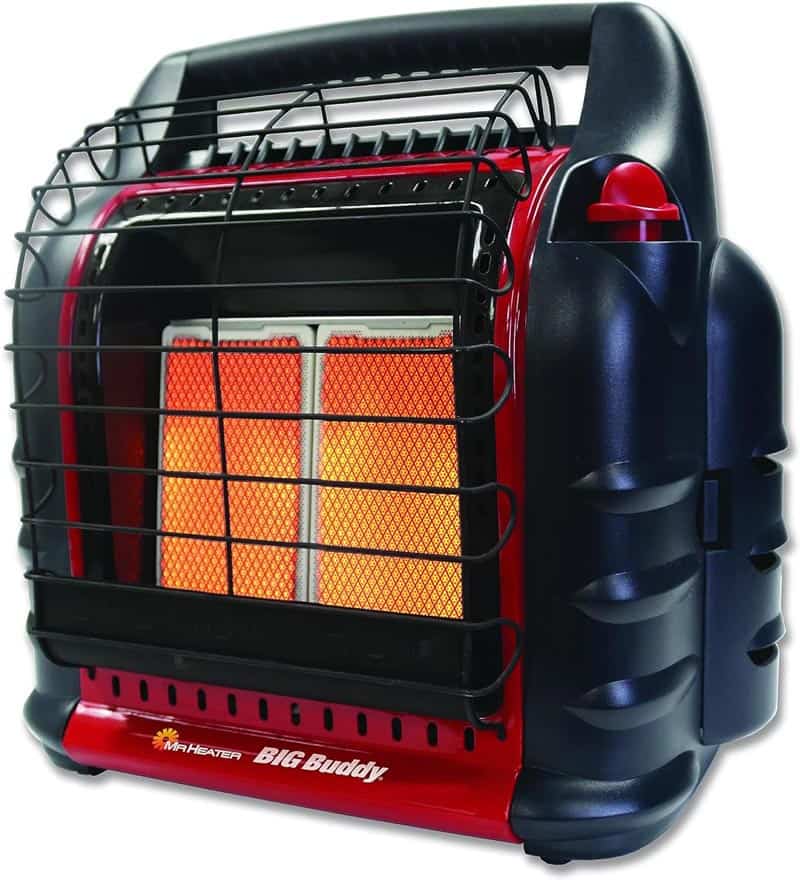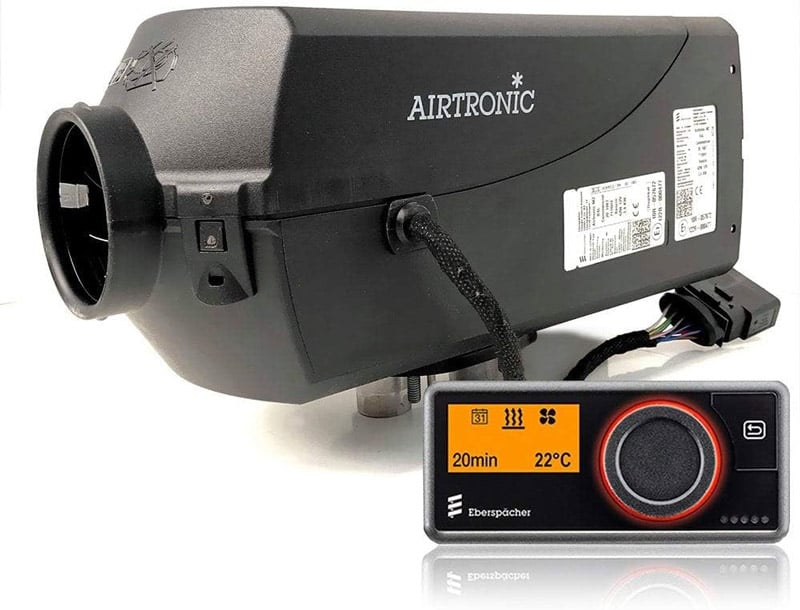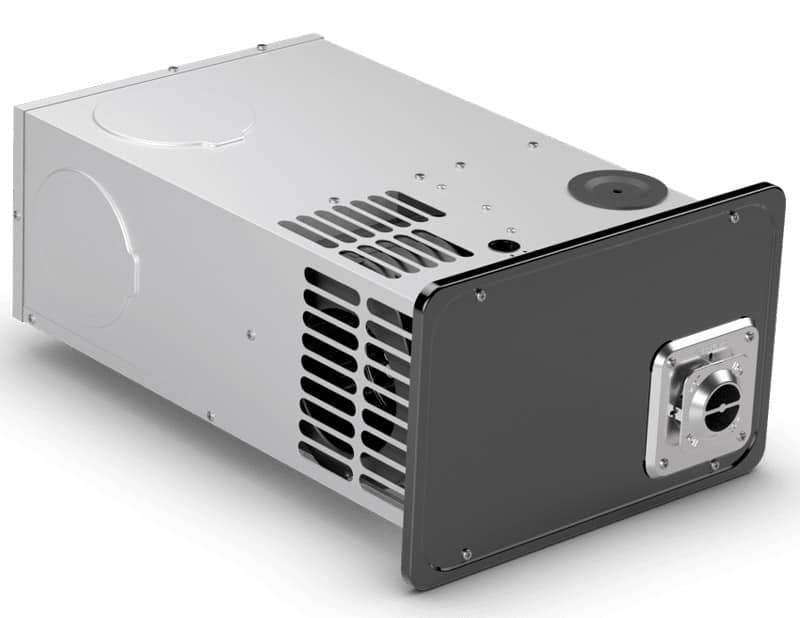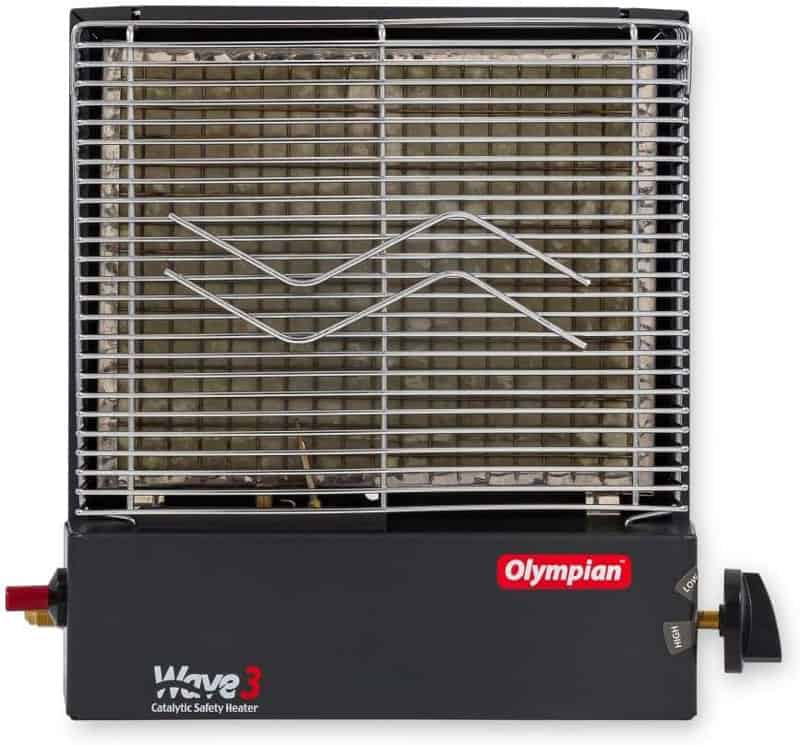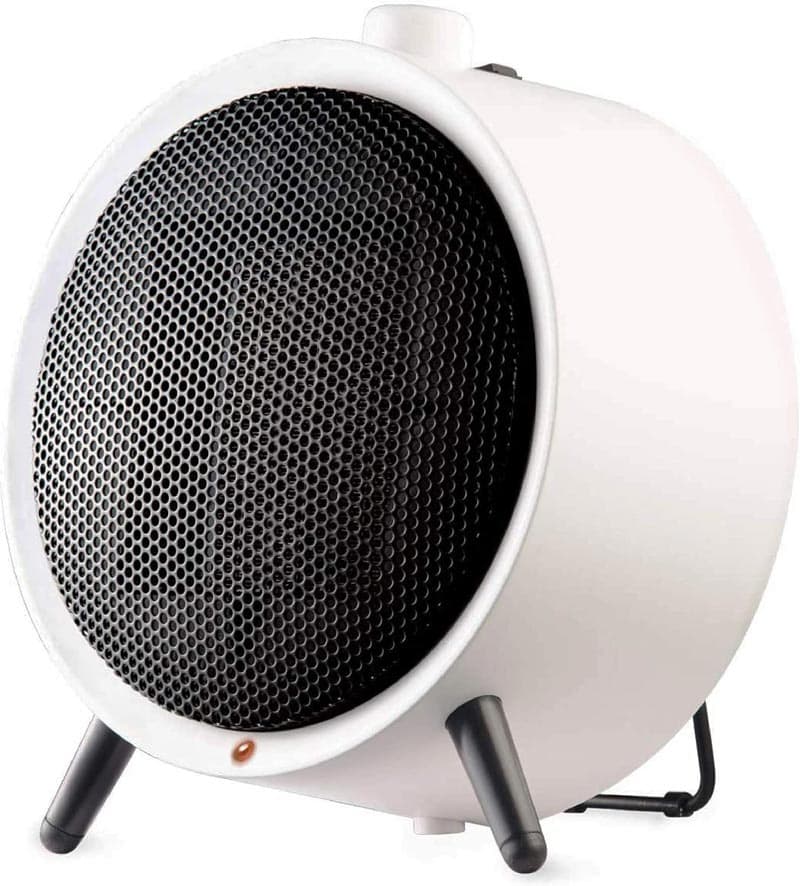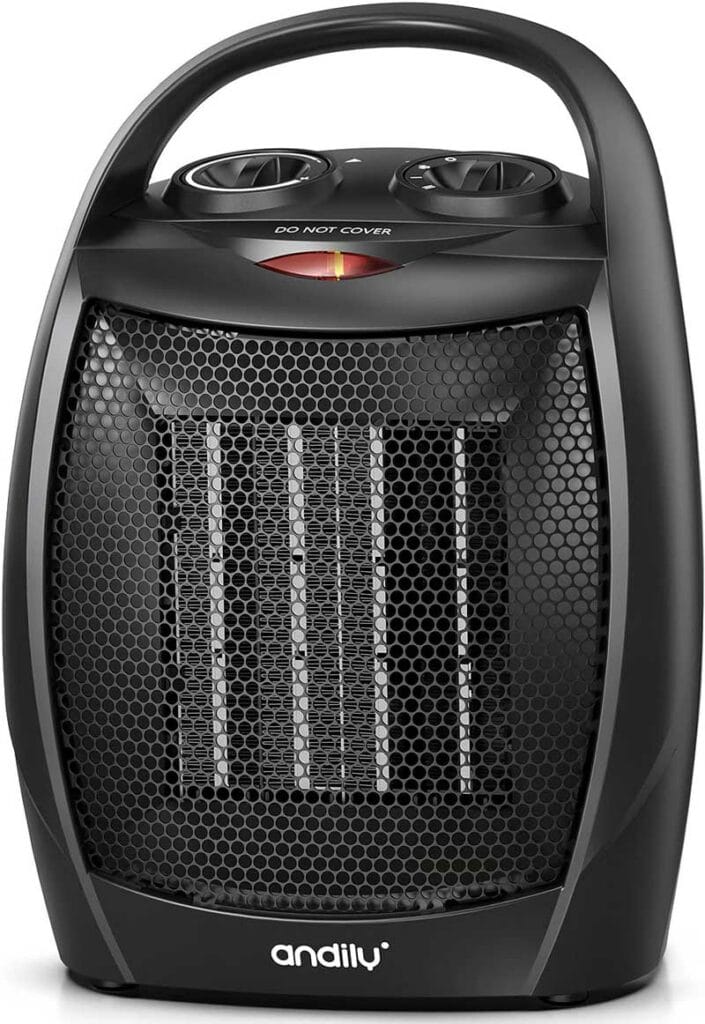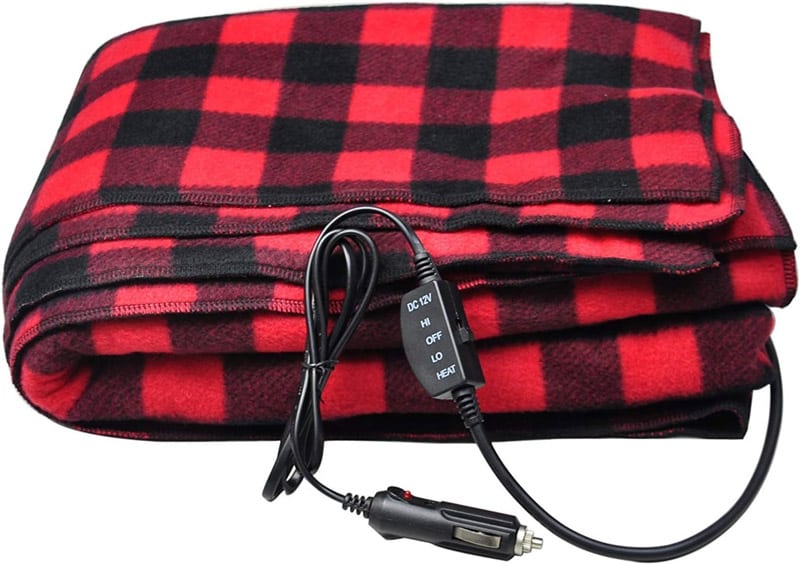Looking for the best campervan heaters? These are our top 8 picks for heating your van in 2025.
Although we are personally not big fans of cold-weather camping, there is something beautiful and serene about waking up surrounded by snow.
That is, assuming you actually slept through the night and didn’t spend the whole time shivering!
Van life is all about adventure – both big and small. It opens us to the world by allowing us to live in and explore all sorts of places at various times throughout the year.
And while you’ve likely packed away all of the camper van essentials and your favorite outdoor gear, having campervan heating is essential to being able to enjoy some of the colder nights.
Many campers love to visit snowy destinations in winter because the crowds are significantly lower at that time of year.
Places like Banff, in the Canadian Rockies, Queenstown in New Zealand and the Rocky Mountains in Colorado, are winter enthusiasts’ dreams.
But if you enjoy colder destinations you have to have a plan for staying warm. Both portable and fixed campervan heaters are the perfect solution if you enjoy the cooler side of van life.
Still, choosing the right heater is not easy. There are numerous factors to consider such as van size, fuel cost and consumption, safety features and heat output. Moreover, there are different types of heaters: air heaters, gas heaters, diesel heaters and wood-burning stoves.
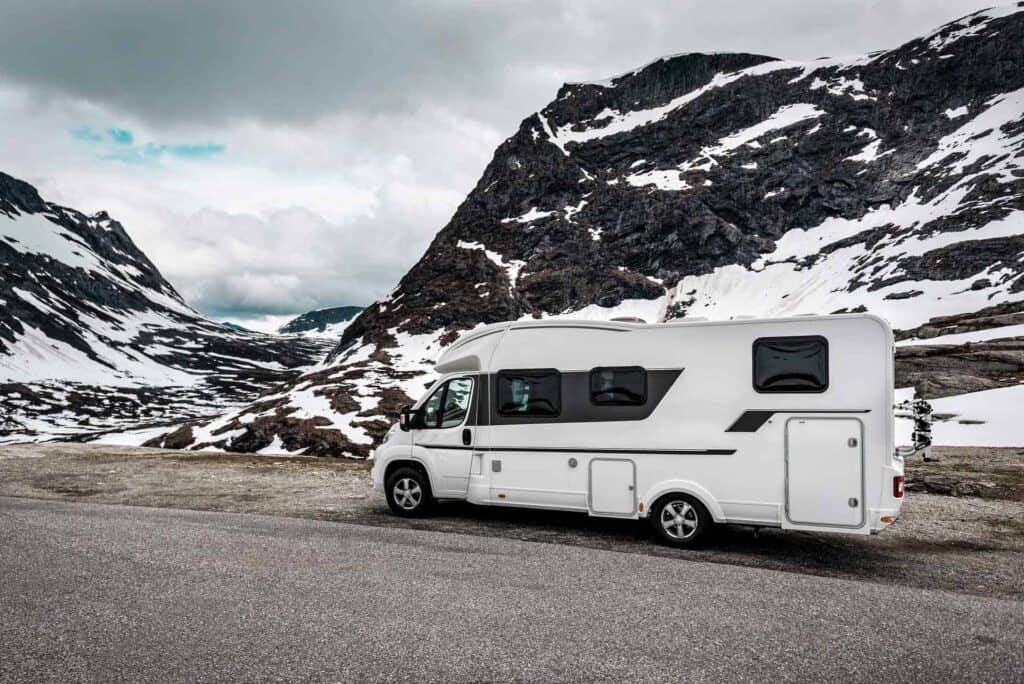
When you add up all of the different options, there are loads of campervan heaters to choose from.
But don’t get overwhelmed. Even though we personally do our best to avoid the cold, we still have methods of using a variety of the products we’ll describe below to keep us warm in the event we just can’t get away from the beauty of the mountains in fall and winter!
Note that as we dive deeper into the topic of staying warm inside a camper van, if you are at the planning stages of your campervan conversion be sure to study the importance of proper insulation in your van.
Not only can it keep you warmer in the colder climates, but also you will stay cooler during the warmer months.
But if you’ve already properly insulated your van, then let’s jump right into our vote for the best campervan heater.
Our Pick – Mr. Heater Portable Propane Heater
Multiple heater settings
Automatic shutoff when tipped over
Fueled by multiple propane sources
Table of Contents
- Best Campervan Heaters
- Best Overall: Mr. Heater Portable Propane Heater
- Best Diesel Heater: Eberspacher Espar Airtonic S2 D2
- Best Propane Furnace: Dometic DFSD 12111 Small Furnace
- Best Catalytic Heater: Camco Olympian RV Wave-3
- Best Space Heater: Honeywell HCE200W
- Runner Up: Andily Space Heater
- Best Wood Stove: Kimberly Tiny Wood Stove
- Best Heating Alternative: H-Hour Electric Blanket
- What to Look for When Choosing the Best Campervan Heaters?
Best Campervan Heaters
While there are lots of options to choose from, these are the best camper van heaters we’ve found to keep you warm on the road!
We’ve reviewed each one to let you know what we like and don’t like and think you’ll be able to make a better purchase decision by the end of this post!
To be honest, the thought of a diesel heater or wood-burning stove inside a campervan is not entirely appealing to us.
But we have included the top-rated products for each of these below. And we’re not focusing on the dozens of options for other types of camper van heaters.
Instead, we’ve narrowed this list down to the 8 top recommendations for any kind of van dweller seeking respite from the cold.
Best Overall: Mr. Heater Portable Propane Heater
Mr. Heater is probably the most versatile and best campervan heater on our list. The small propane-powered heater can generate a solid 18000 BTU heat which can heat 450 square feet of area in minutes.
It has three heat settings to control the amount of heat generated – low, medium, and high – generating 4000 BTU, 9000 BTU, and 18000 BTU, respectively.
As a fuel supply, you can connect two standard 1lb propane tanks. This makes Mr. Heater perfect for both indoor and outdoor usage. Or you can plumb it into your propane system or carry a larger 20 lb propane tank for peace of mind.
The heater itself has high-quality nickel, steel, and plastic construction. The heating surface has a porcelain coating for rapid heat generation.
We think this is an excellent choice because it is small and lightweight enough to be carried anywhere on the campsite. Moreover, the solid, grippy handle keeps your hands off the heat.
So whether you want to keep your cozy tiny home warm or care to share a little heat and conversation with new friends on the road, this is your go-to in this regard.
As far as safety goes, the heater has an automatic shut-off if the heater tips over, when the oxygen level is low and when the pilot light goes off. So you can sleep easy knowing that you are safe throughout the night.
On the downside, camping in high elevations is not going to be pleasant because it may not operate over 7,000 ft. Moreover, Mr. Heater is not known for fuel efficiency and has relatively high energy consumption.
So, we recommend keeping an extra propane tank if you are planning to cook and run the heater on the same tank. Or, of course, if you’ve created a quick connect option to your propane system then you’ll be worry-free.
PROS
- Lightweight and portable
- Beneficial safety shut-off feature
- Ample and rapid heat generation
- Strong body and shock-absorbing insulation
CONS
- Inoperable over 7000ft
- Rapid propane consumption at the highest level
Best Diesel Heater: Eberspacher Espar Airtonic S2 D2
Eberspacher has been selling high-quality heaters for over 40 years. The German company is popular for its van diesel heater which can be found in many European van models, such as the Mercedes Sprinter.
The Airtronic D2 is a reliable diesel heater producing 2.2kW or 7,500 BTU of peak heat output. The operation is noiseless, thanks to its brushless motor and silent fuel pump.
D2’s fuel consumption is economical. It only burns 0.1L to 0.28L diesel per hour. The regulating range is between 2900 BTU and 7500 BTU adjustable through the handy EasyStart PRO. It also has a seven-day programmable timer.
Diesel heaters face difficulties at high altitudes, but Eberspacher Airtronic D2 will work perfectly at 3,000 m or about 9800ft. And you can add a high-altitude kit for even higher journeys. All the connectors and electrical harnesses come in the box.
We’re not huge fans of adding a diesel heater to a campervan because most of the best campervan models in the US and Canada have gasoline and not diesel engines. But if you have a Mercedes Sprinter or another imported European model, you may find the efficiency of this diesel heater is hard to pass on considering you do not need a separate fuel tank.
And you will likely also want to seek the professional help of mechanical experts when it comes to installing this diesel heater.
On the downside, the price is quite substantial. As a matter of fact, it’s the highest of any option on this list. And as we’ve mentioned, a diesel heater will do you no good if you drive a gasoline-powered van.
But it is a worthy and safer investment for any camper traveling through cold areas.
PROS
- Noiseless and fuel-efficient
- Useful EasyStart Pro for easy temperature
- Regulation and time programming
- Great for areas with low oxygen
CONS
- Expensive
- Challenging to install
Best Propane Furnace: Dometic DFSD 12111 Small Furnace
The Dometic DFSD 12111 Small Furnace is an electric furnace camper van heater. The relatively compact and lightweight heater rapidly warms the entire van efficiently.
At 7″ x 12″ x 20″, the small Dometic furnace conveniently fits virtually anywhere you want it to fit in the camper. It can produce 12,000 BTU and starts on a 12v electric supply while running on propane.
Further, it can be mounted either horizontally or vertically, giving you a wide range of options for placement inside your camper van conversion.
We are big fans of this propane heater and we would have made it our top pick it wasn’t for the fact that many van dwellers are intimidated by the size of the heater, the fact you need a relatively large permanently installed propane tank and the installation requires that you punch a hole somewhere into your camper van.
Having used larger versions of this Dometic furnace in various larger RVs in the past, we would highly consider intentionally making the space this more compact version in any future campervan we own. Of course, to make it worthwhile we would also have to change our traveling habits to include colder climates.
Another drawback can be its weakly constructed body. You’ll want to make sure to leave space around it when you frame it to give it enough room to vent excess heat through the vents. And despite what the official documentation says, you’ll want to invest in your own ducting and thermostat to make the most of this gas heater.
PROS
- Great heat output of 12,000 BTU
- Low power consumption
- Compact
- Vertical or horizontal mounting options
CONS
- Flimsy body
- Thermostat and ducting not included
- Difficult to install
Best Catalytic Heater: Camco Olympian RV Wave-3
The Camco Olympian Wave-3 is among the best heating options for a campervan. Catalytic heating is very effective as the gas waste is almost zero. But this makes it a slightly more expensive alternative to Mr. Heater.
There are two heat levels generating, 1600 BTU and 3000 BTU, consuming only 1/15lb and 1/8lb of propane per hour. Constant running costs are meager. A 1lb propane tank will keep 100 square feet warm for 5 to 12 hours.
Safety features include auto shut-off in case it tipped. Also, as a catalytic heater, it consumes propane and produces no carbon monoxide, so it is a perfect option for small campervans.
We’re big fans of this model because of its fuel efficiency and the fact it requires no source of electricity to run.
We love space heaters because, like catalytic heaters, you can direct the heat where you would like it.
But space heaters require a 120-volt power source, whereas this Camco Olympian Wave-3 does not.
On the downside, the amount of ventilation required is huge since it needs oxygen to operate.
So you will have some heat trade-off as an open window draws a lot of heat outside. Still, it is a solid heater for a small campervan, pushing out between 1,600 to 3,000 BTUs in up to a 130-square-foot space.
PROS
- Catalytic heating is 99% effective
- Low fuel consumption even at high heat
- The wall mounting option saves a lot of space
- Safety shut off
- Silent operation that does not have a blower or fan noise
CONS
- Require large opening for ventilation
- Not suitable for big campervans
Best Space Heater: Honeywell HCE200W
The Honeywell Uberheat is an energy-efficient and affordable portable ceramic heater. This small electric heater is the best for small to medium vans as it creates a lot of heat in a small space.
It features two heat settings and an adjustable thermostat, although you should be warned that the temperature regulation is not accurate. On thermostat mode, the heater essentially just shuts off once it has run for so long. Then it starts back up again.
With its modern minimalistic appearance and sleek black grill, it is perfect for indoor and outdoor usage.
Honeywell has not compromised on safety. The compact heater features a tip-over and overheating protection. Moreover, all the wires have high-grade silicone covering, and the plastic body doesn’t heat up. The heater will turn off if an object such as a blanket or clothing gets too close to it, further preventing a fire.
We are big fans of this little heater and have traveled with ours since we left in our first RV in 2018. Although we rely on our Suburban furnace primarily as we spend most of our time boondocking without shore power, we still keep it around for the days when we splurge on a formal campsite, or when we are camped at a friend or family member’s house.
The thermostat does work for us, to some degree. But it is not as accurate as of that on our furnace. We basically fall asleep with the heater running in thermostat mode and then wake up sometime later to the heater turned off. Then sometime later we’ll hear it crank back on.
The downside of this ceramic heater can be the inaccurate temperature control. There are no temperature markings with the dial so it’s pretty much just turned on or off. This heater also requires a 120-volt power source so you can only run it if you are plugged into shore power or have a generator powering your camper van.
PROS
- Visually pleasing appearance
- Incredibly safe to use with tip-over and overheating protection
- Compact and lightweight
CONS
- The front grill gets hot to the touch
- The adjustable thermostat is not precise
- Requires 120-volt shore power
Runner Up: Andily Space Heater
The Andily heater is another great ceramic campervan heating option so close to the Honeywell UberHeat that we had to include it as a runner-up in this category.
The heater has three heat levels producing 1500-watt, and 750-watt and the third one is the fan-only mode. The exterior is beautiful with two dials on top—one for the adjustable thermostat and the other for mode selection.
A ceramic heat source gets hot in just two seconds and generates ample heat output for a campervan. The heater is great for small spaces, so we recommend keeping them close to the bed.
Andily heater also has tip-over and overheating protection. Moreover, the ETL certification ensures reliability and safety. This is also powered by 120-volt electricity so you won’t be able to use it everywhere you may want to travel.
As mentioned above, this was a close second pick to its Honeywell counterpart and we would say if you are in the market for a smaller heater you can run on 120-volts then you could easily flip a coin between the two.
The Andily does tend to be slightly less expensive. So if you want to save a few dollars you could go with it.
PROS
- Rapid heat-up
- Built-in thermostat for accurate temperature
- ETL certified ensuring reliability and safety
CONS
- High power consumption
- Not suitable for big campervans
- Requires 120-volt electricity
Best Wood Stove: Kimberly Tiny Wood Stove
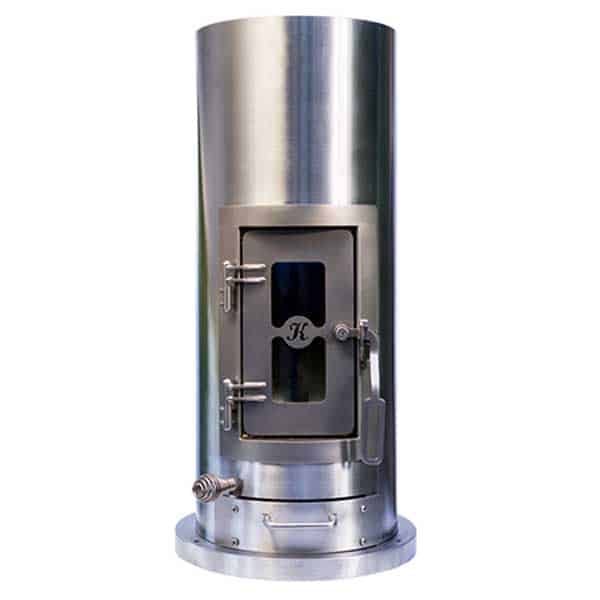
- Price Range: Over $4,000
- Type: Wood Stove
- Power/Fuel Source: Wood
- BTUs: Up to 40,000
The Kimberly tiny wood stove is a premium and stylish wood-burning stove that is one of the more unique heating options in a camper van.
The EPA-certified campervan heater keeps your tiny home warm and cozy around the night on one load of wood.
The tiny wood stove produces a lot of dry heat, upwards of 40,000 BTU per hour. This allows it to efficiently heat a small campervan or larger skoolie in no time.
It is among the best camper van heaters for those who prefer dry heat and have a steady source of wood fuel.
The wood stove does not have any moving electrical parts like a fan or blower. But wood stoves are known for doing an exceptional job of heat distribution.
Kimberly’s tiny wood stove has the most pleasing design and appearance which compliments every type of van interior.
As we mentioned at the top of this post, we’re not big fans of wood stoves in campervans. While they are boutique and catching on among those in van life, we feel they are not very practical.
The cost of firewood has increased dramatically over the years, so unless you plan to camp indefinitely in national forests where wood is plentiful, the costs will add up.
Further, you’ll need a dedicated space away from the source of heat of this stove. Space – the ever-elusive nemesis of van life!
Another downside to consider is that the wood-burning stove weighs a whopping 56 lbs. Moreover, the hefty price tag is not going to appeal to every camper. But it does add a flare of home and is a classic for larger vans.
PROS
- EPA certification ensures the lowest emission
- Adjustable temperature
- Prolonged burning time due to built-in dampener and venting system
CONS
- Very expensive
- Require a floor space and chimney
- Don’t forget the cost of firewood!
Best Heating Alternative: H-Hour Electric Blanket
Sometimes the best campervan accessories aren’t as robust and fancy as you think they have to be. Van Life is known for creative problem-solving solutions.
An electric blanket is an affordable heating option for van lifers. The H-Hour Electric Blanket is a 12V car-warming blanket that has heating elements that keep things warm beneath the blanket.
The soft and warm blanket has a 100% polyester fleece construction. It plugs into the cigarette outlet of the camper van or you can use an adapter to plug it in an outlet.
The blanket is equipped with a thermostat and has two-level heat control. It is large enough to roll around a person, making it a perfect companion for a solo camper.
We like the idea of using this heating blanket instead of investing in larger, costlier campervan heating options because it does the trick and then packs away into a small space when you aren’t using it. But then again, we prefer to visit colder climates for short periods of time where this would work nicely.
The H-Hour blanket is a great heating system for minimalists and those who don’t like to do anything more than dabble in the cold. You can keep yourself warm and pile on other blankets and layers of clothing if the cold is unbearable.
Overall an electric blanket is an affordable alternative to a more expensive campervan heating option.
PROS
- Comfortable and warm polyester filling
- Multi-level heat control
- Affordable heating option
CONS
- The heating is not enough for the entire van
- Only large enough for one person
What to Look for When Choosing the Best Campervan Heaters?
If you haven’t already decided which kind of campervan heater is best for you, we’ll give you a little perspective in this section on what you should consider when shopping.
Many factors like price, operating cost, installation, fuel type, and fuel consumption are taken into account before choosing the best heaters.
Types of Camper Van Heaters
There are several types of campervan heaters and the sky is the limit to alternative options such as layering your clothing, adding extra blankets, or simply avoiding the cold at all costs!
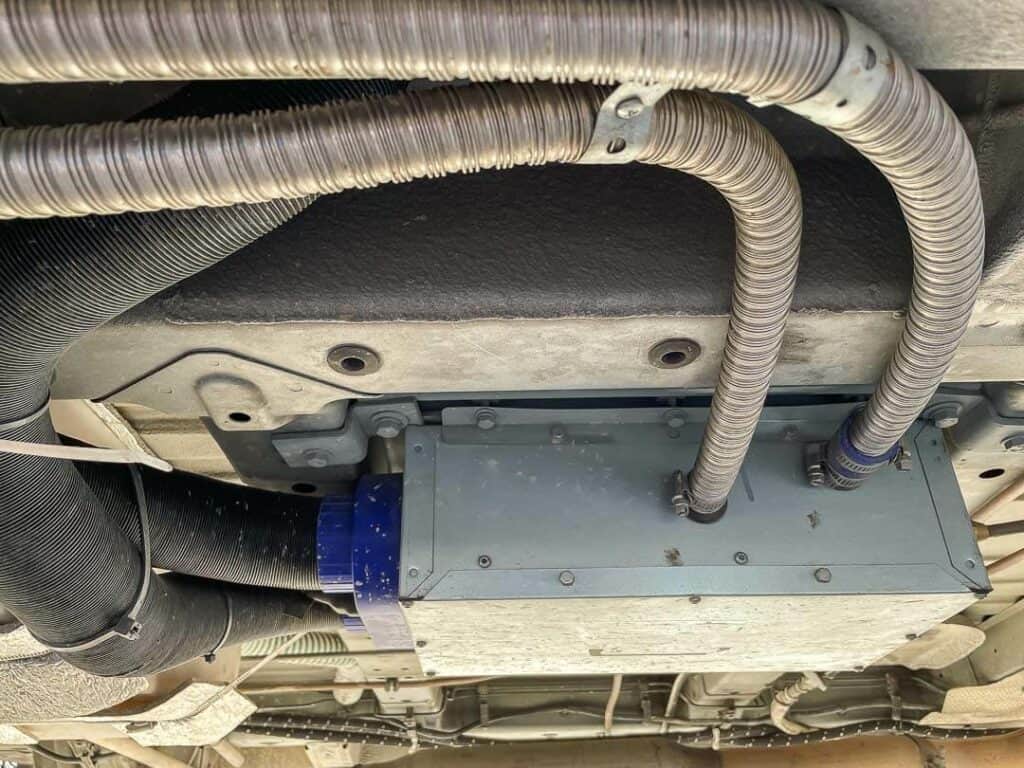
12v Electric Heaters
Electric heaters convert electricity into heat. A 12-volt heater is typically small and can run on your van’s battery bank. The heaters don’t usually emit any smell or gas, so they are safe for prolonged usage.
12v heaters are an ideal option for a small campervan because they are inexpensive, small, and produce enough heat to keep the van cozy.
Heated Blankets are another form of 12v heater. They connect to the cigarette outlet and keep you warm around the night with minimal power usage.
Remember, when using anything 12-volt in your van you will want to make sure you have an adequately sized battery bank and perhaps a battery monitor for peace of mind knowing that you can fall asleep running your heater without damaging the batteries.
120V Electric Heaters
120V heaters are the big power consumers. They are the better performer but consume a crazy amount of electricity.
Even if you have a large battery bank and a sizeable inverter, operating them with the van’s battery is a bad idea if you are out for a long time.
They consume so much energy that they will draw your batteries down to unsafe levels in no time. Using it with the shore power is the better choice.
Propane Heaters
Propane heaters are a popular heating system for van lifers and campers. The running cost of propane heaters is much cheaper than the electrical heaters. Moreover, propane gas is abundantly available and it’s likely you’ve already incorporated a robust propane system into your campervan build.
A propane heater uses radiant heat to spread the warmth. Some heaters also have a fan for effective and faster heat distribution. You can also get a portable propane tank to make them more versatile.
The heaters use proper combustion for heating, so the heat output can be hazardous in some cases. So, it is essential to have a carbon monoxide detector and proper ventilation to avoid any mishap.
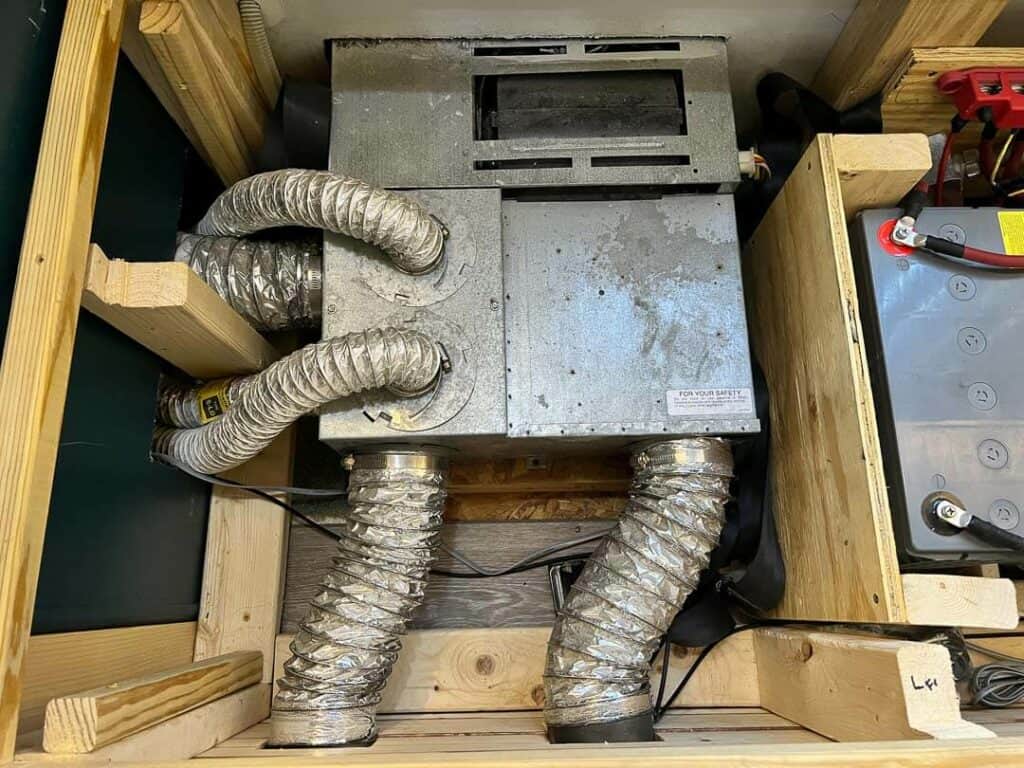
Diesel Heater
Diesel heaters are another practical option for campervans. The heater is typically installed under the seat because it connects directly to your diesel tank.
Diesel heaters are great because diesel is usually readily available and used in the vehicle’s engine. Moreover, they are pretty energy efficient. Typical diesel heaters only consume 0.3L per hour.
The initial installation cost of diesel heaters can be expensive, but they are an excellent heating option in the long run… as long as your van runs on diesel!
Wood Stoves
Wood stoves are great for cold climates. Depending on where you travel, fuel is cheap and readily available. You can even get it free in various places throughout the US. Their heat output is excellent and efficient.
Many things about wood-burning stoves attract campervan owners. Their beautiful appearance and the vibe of sitting in front of a wood fire in winter is exceptional. They can operate in high altitudes with low oxygen because they are, well, fires.
But the price and cost of installation are not friendly to every van lifer. Moreover, you will need some extra things like a chimney, vent pipe, heat-powered fan, and humidity monitor among other things. And space – don’t forget about the space you’ll need to keep safe if you opt for a wood stove.
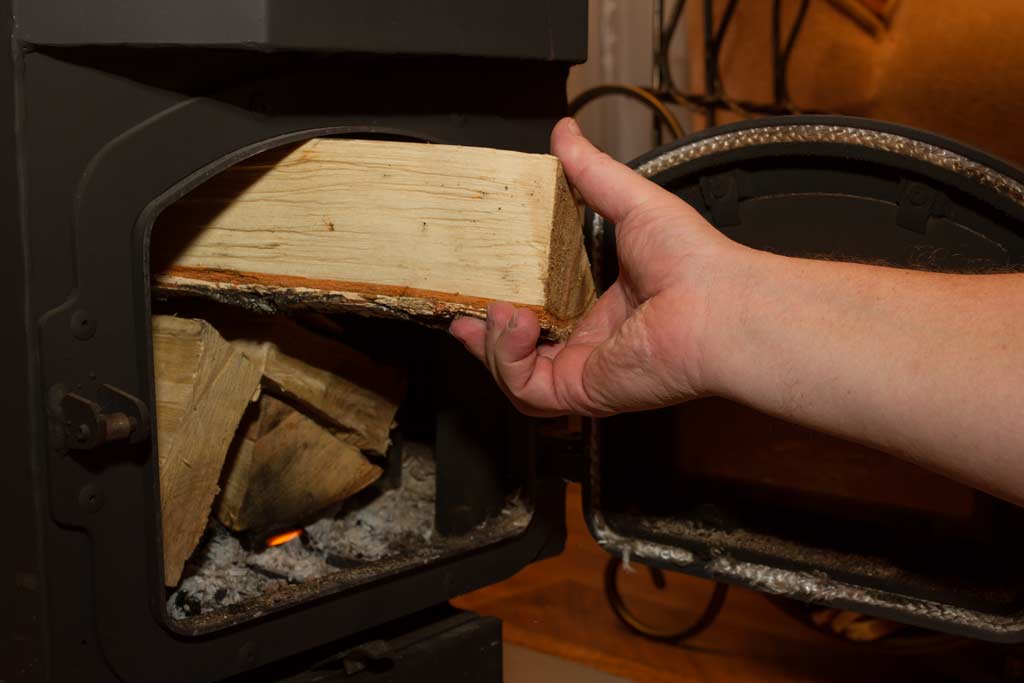
Power Source
First and foremost, a heater’s power source is an important consideration when shopping for a camper van heater. As discussed above, it can be electric, diesel, propane, or wood, depending on the choice you make.
Pick a device that will perfectly fit your van. For example, if the campervan doesn’t have proper ventilation, then go for an electric heater. If the ventilation is good, then you can choose between propane, diesel, or wood stove. But keep in mind wood heaters can be oversized for a small camper.
So, consider all aspects of your van before choosing a heater based on its power source.
Ease of Use
How easy or hard is it to use and maintain a heater? Can a newbie or a person with a bit of knowledge maintain the heater?
Propane and electric heaters are easy to use and maintain, the controls are straightforward, and fault tracing is not tricky. In contrast, diesel heaters are complicated to maintain because those heaters are like mini engines.
And do you feel comfortable running a propane heater through the night? Or would you prefer the simplicity of an electric blanket?
There are lots of things to consider for each option and we recommend that you look back through the pros and cons of any option you are considering.
Time to Heat Space
How much time does it take to heat the van? This is another crucial criterion to consider before buying camper heaters.
You will not only consider the time taken but also how efficiently it can maintain a particular temperature.
For example, the Kimberly Tiny Wood burner can rapidly heat the camper van but maintaining a temperature is difficult. While electric heaters will take some time to heat the space, they can efficiently preserve constant temperature.
Campervan Heating Safety
There are many risks associated with camper heating systems. Heaters pose a significant threat that van lifers should be aware of.
Firstly, there is almost always a fire hazard when you are dealing with creating a heat source. Keep the vents open and place the heater away from flammable objects. Moreover, some van lifers put their wet socks or clothes over the heaters or dangerously close to them, which is not a good habit.
There is another risk of tipping over, which can also start a fire. Consider buying a heater with an auto shut-off option and keep the heaters in a safe place.
Diesel and propane heaters can also cause carbon monoxide poisoning. It is a tasteless and odorless gas that causes suffocation. So, it is vital to have a carbon monoxide detector and proper ventilation if you go that route.
Wrapping Up
Van life is full of decisions. This is especially true if you are planning a camper build and you must think through any appliances, such as heaters, that may require more permanent installation.
Although we are big fans of propane furnaces due to their heat production, the fact we run other appliances off of propane as well and they have a more accurate thermostat, the best option for anyone in van life is Mr. Heater.
Our Pick – Mr. Heater Portable Propane Heater
Multiple heater settings
Automatic shutoff when tipped over
Fueled by multiple propane sources
Fuel it with two 1 lb canisters or a larger container. Keep it indoors or share the warmth with friends outside while you enjoy the night sky. By far the most popular and useful heater option for van life is Mr. Heater.
You will be hard-pressed to find anyone in van life who spends any amount of time in cold climates without this easy-to-use and reasonably-priced portable heater.
Hook it up to a 20 lb propane tank or portable canisters and you’re ready to go.
With multiple heat settings and an automatic shutoff in the event it tips over, you can rest easy enjoying the warmth of your van while the winter world passes outside you.
DISCLAIMER: Some of the links in this article are affiliate links, which means if you book accommodation, tours or buy a product, we will receive a small commission at no extra cost to you. These commissions help us keep creating more free travel content to help people plan their holidays and adventures. We only recommend the best accommodations, tours and products that ourselves or our fantastic editorial team have personally experienced, and regularly review these. Thanks for your support, kind friend!

